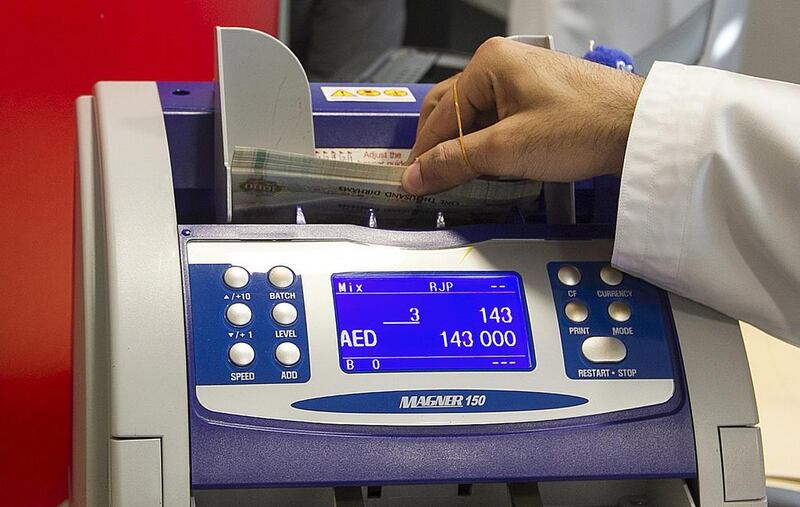Total bank deposits fell by Dh7 billion last month, mainly due to a drop in non-resident money, said the UAE central bank.
The bank didn’t say why non-resident deposits decreased and no one was immediately available to comment. But some analysts suggested that the drop may be owing to European customers pulling money out of offshore accounts of UAE banks following Britain’s vote in June to pull out the European Union. The vote sparked panic in markets, especially among shareholders of European banks.
The UAE Central Bank said that Dh6.3bn of the decline in total deposits came from non-residents, while Dh700,000 came from residents. The bank did not give a figure for non-resident deposits, but in June it stood at Dh177.1bn, a drop of 0.4 per cent month-on-month. In June, non-resident deposits fell by 3 per cent month-on-month, according to central bank data.
The Egyptian investment bank EFG Hermes noted in June, following the Brexit vote, that National Bank of Abu Dhabi was most exposed to Brexit, with 20 per cent of its deposits coming from Europe.
At the same time, the central bank said in its release on Sunday that total loans and advances decreased by 0.2 per cent at the end of last month to Dh1.54 trillion from Dh1.543tn in June. The bank did not give similar total figures for total deposits.
Amid falling oil prices, lenders have become more cautious about who they lend to and governments have been tapping deposits to fill funding gaps, observers say.
“The drop in oil prices is forcing GCC nations to use up reserves,” said Alp Eke, senior economist for the Middle East and North Africa at National Bank of Abu Dhabi.
“Considering potential increases in supply of oil not being matched by demand, we may have an extended period of low oil prices, so tight liquidity in the banking sector may continue.”
mkassem@thenational.ae
Follow The National's Business section on Twitter





